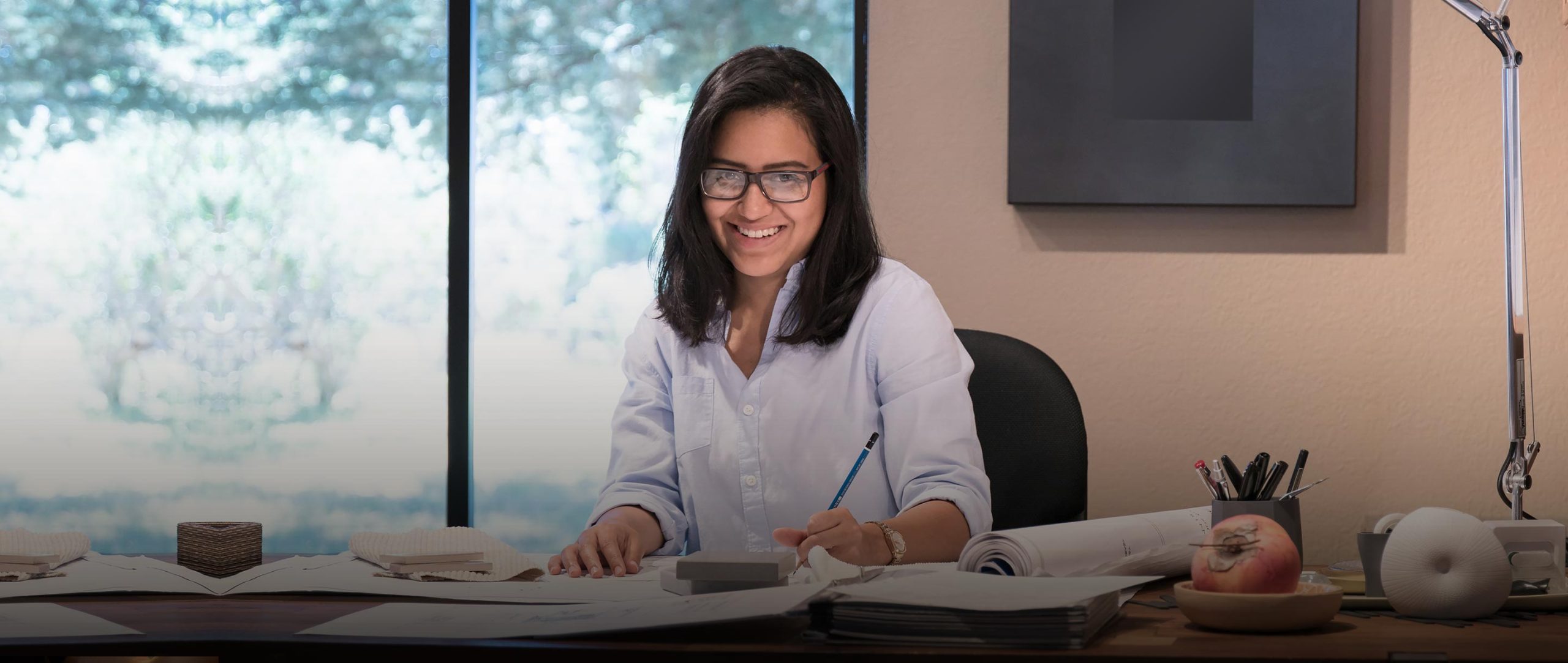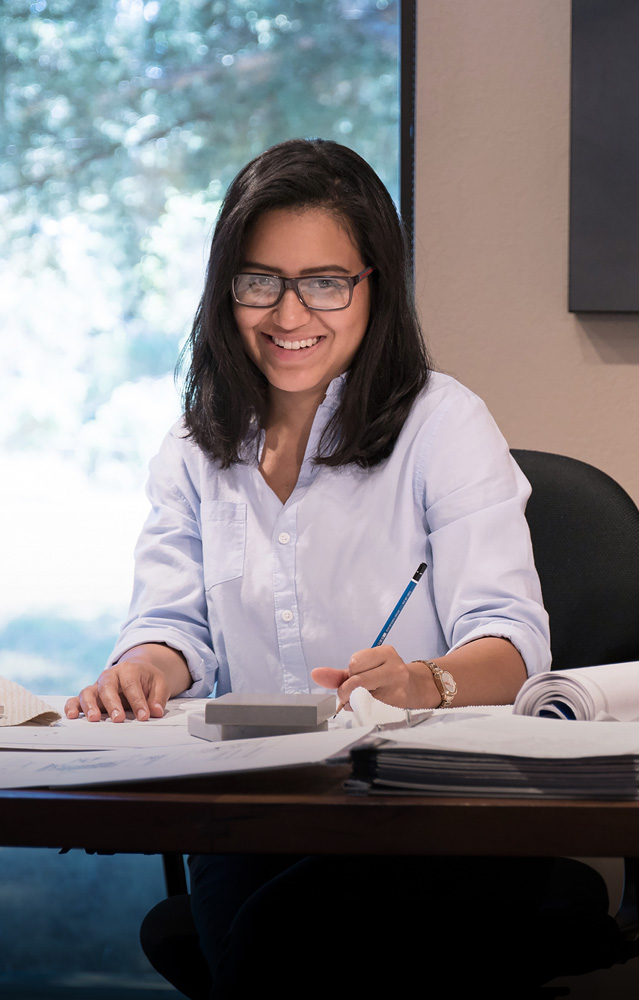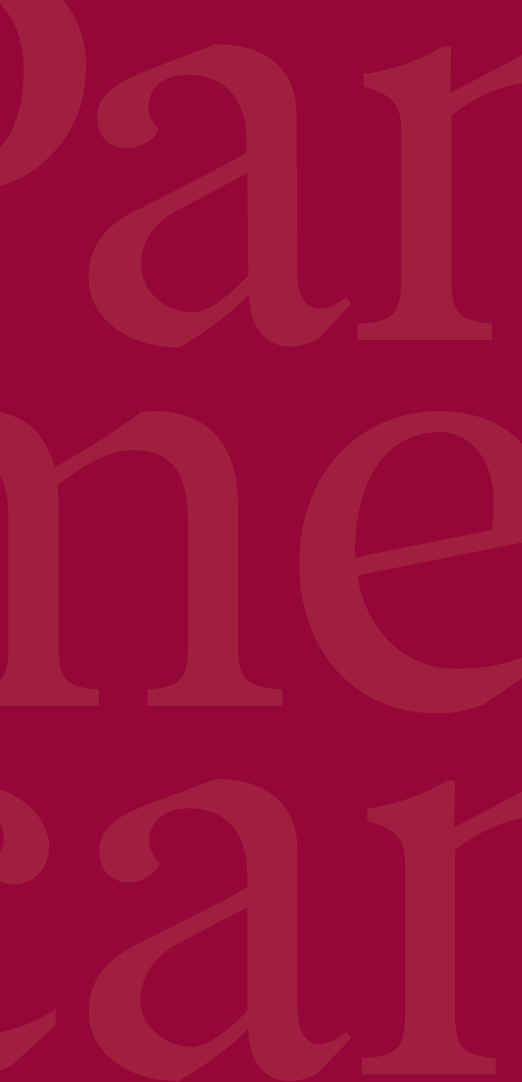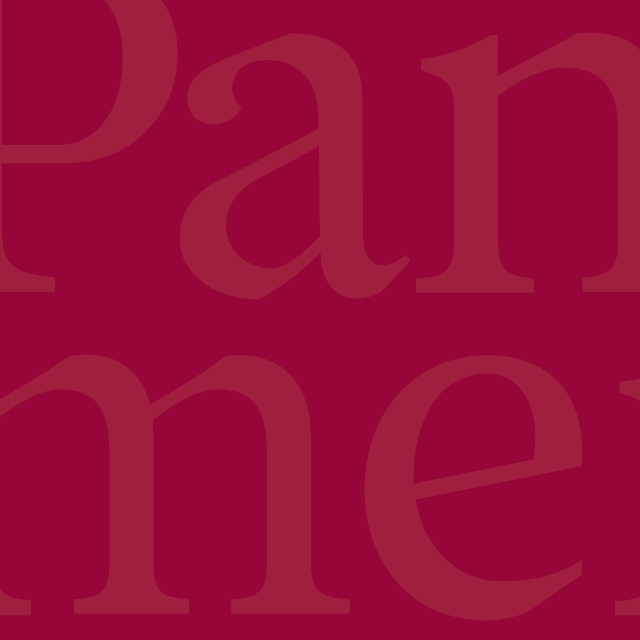

Architecture
The UP Architect is a professional with knowledge of modern technologies to apply them to the integration of human beings, comfort and safety.
It has a high social and cultural sensitivity that responds to people's emotional needs.
It designs beautiful and highly functional architectural spaces, solving the needs of habitability beyond the indispensable minimum, promoting the full development of the human being.
It develops technology, intelligent systems, construction processes, sustainability models and manages projects with excellence.
Entrepreneurial approach
Our curriculum, in addition to offering everything necessary to train excellent architects, provides the graduate with a solid foundation in management and management of innovative projects with social impact.
Social and cultural sensitivity
Focus on the development of habitability with strong integration of human groups, understanding the lifestyles of modern society: co-working, co-living, nomad-living, nesting, home-working, etc.
Local impact with international projection
Liaison, agreements and joint projects with various national and international institutions.
The five pillars of the Bachelor of Architecture are:
- State-of-the-art technology
- Sustainable habitat
- Art
- Urban Impact
- Project management (BIM)
RVOE
SEP 20200056 dated 14-Feb-2020 ,plan 2019 schooling mode, Guadalajara campus.
ENTRY PROFILE
Applicants for the Bachelor's Degree in Architecture must be interested in improving their environment through the creation and development of built spaces, as well as have the following characteristics.
Knowledge of:
- Basic Physics
- Social sciences
- Basic algebra
- Basic geometry
- Basic drawing
- Natural sciences
- Ecology and sustainability
- Editorial staff
Skills for:
- Reading comprehension.
- Understanding and solving problems.
- Inductive and deductive reasoning.
- Abstraction of concepts.
- Understanding of symbolic language.
- Imagination of spatial forms.
- Identification of characteristics and cultural differences of human groups.
Aptitude for:
- To be useful to society and to improve the quality of life in general.
- Address the human needs involved in any architectural project.
- Develop creativity.
- Obtain a global vision.
- Working in a team.
- Visualize projects as processes to be followed to completion.
- Respect the natural and urban environment.
- Undertake projects.
GRADUATE PROFILE
The architect graduated from the UP offers physical solutions to buildings for their adaptation in terms of comfort in terms of temperature, humidity, acoustics, ventilation and lighting by applying bioclimatic techniques, as well as intelligent digital technology. It creates companies in the field of construction industry, financing, real estate investment and equipment management. Integrates social, cultural and economic benefits to architectural projects.
In short, he applies the techniques of architectural design and planning to design beautiful and functional spaces oriented to human activities.
Professional development opportunities for the UP Architect may include the following:
- Management of architectural firms and construction companies.
- Real Estate Developer.
- Sustainable construction consultant.
- Architectural designer of buildings, interiors, visual merchandising, exhibitions, scenographies, etc.
- Management of cultural spaces.
- Experience designer.
- Animator and architectural digital artist.
- Facility manager.
- Any professional activity that has to do with beauty, art, functionality and modernity of architecture.
FIRST SEMESTER
- Architectural Composition I
- Fundamentals of Architecture and Urbanism
- Descriptive Geometry
- Topography
- Architectural Drawing I
- Applied Algebra
- History of Culture
SECOND SEMESTER
- Architectural Composition II
- Architectural Program
- History of Architecture I
- Sustainable Architecture
- Architectural Drawing II
- Geometry and Trigonometry
- Person and society
THIRD SEMESTER
- Architectural Composition III
- Theory of Architecture I
- History of Architecture II
- Digital Representation
- BIM Model Creation
- Differential and Integral Calculus
- Ethics
FOURTH SEMESTER
- Architectural Composition IV
- Theory of Architecture II
- Building and Infrastructure Budgets
- Advanced Digital Representation
- Installations in Buildings
- Statics
- Theological Anthropology I
FIFTH SEMESTER
- Architectural Composition V
- Theory of Architecture III
- Facilities Information Platform
- Architectural Digital Representation
- Materials and Construction Processes
- Concrete technology
- Theological Anthropology II
SIXTH SEMESTER
- Architectural Composition VI
- Theory of Architecture IV
- Introduction to Structural Systems Design
- Material Behavior and Digital Simulation
- BIM Work Planning
- Social Philosophy
SEVENTH SEMESTER
- Architectural Composition VII
- Architectural and Urban Heritage
- Space Lighting Technology
- Architectural Anthropology
- Modeling of Agents and Virtual Environments
- Man and the Contemporary World
EIGHTH SEMESTER
- Architectural Composition VIII
- Urban Planning
- Architectural Acoustics
- Interconnection of Smart Devices
- Virtual and Augmented Reality
- Professional ethics
NINTH SEMESTER
- Degree I
- Urban Legislation and Habitability
- Project and Construction Quality Systems
- BIM Integral Construction
- Elective
- Elective
TENTH SEMESTER
- Degree II
- Investment Projects and Introduction to Business Valuation
- Energy and Environmental Certification of Buildings
- Legal, Tax and Procurement Structures
- Elective
- Elective
ELECTIVES NINTH SEMESTER
- Construction Regulations
- Entrepreneurs
- Project and Construction Management
- Multisensory Experiences Workshop
- Contemporary Mexican Art
ELECTIVES TENTH SEMESTER
- Project Management
- Architecture and Public Management
- Legal Framework for Innovation
- Marketing for Architects
Admissions




